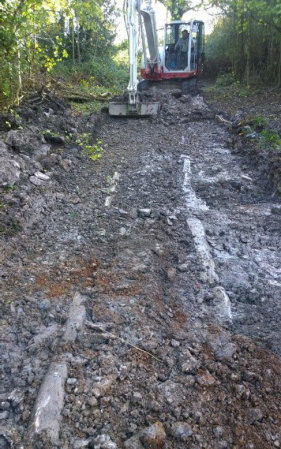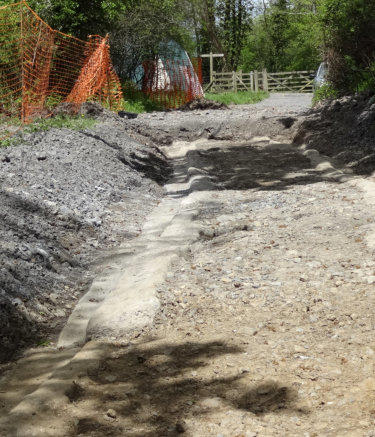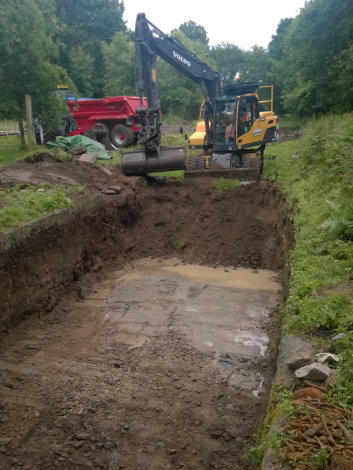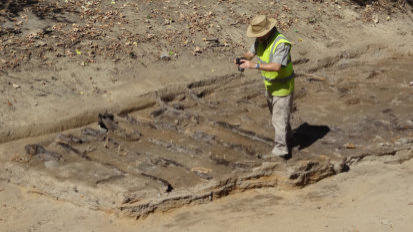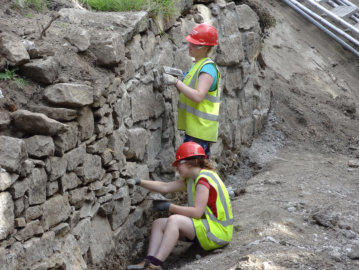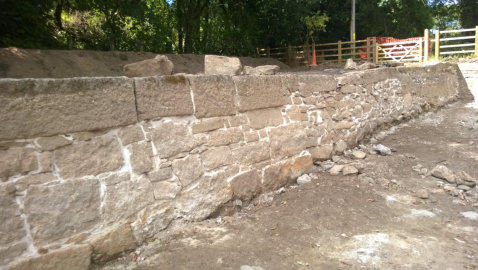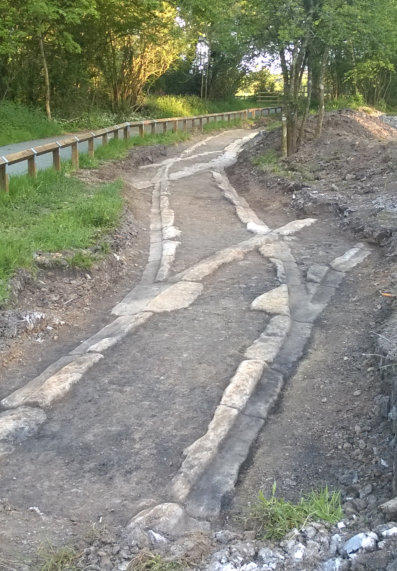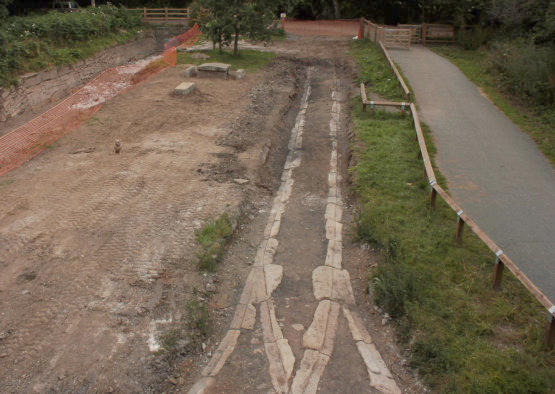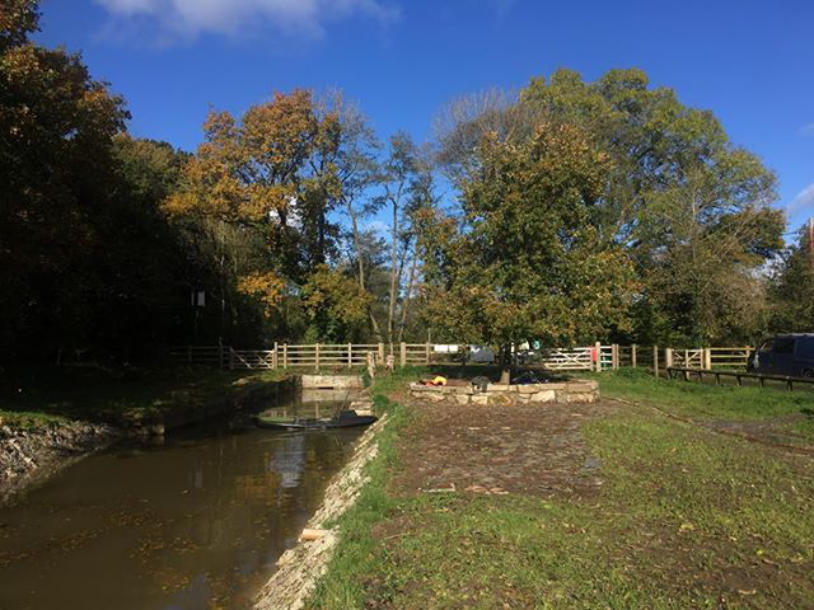Ventiford Basin Legacy Page
Restoration of the Ventiford Basin
Ventiford Basin is the Northern terminus of the canal. Clay from the local area was brought here overland, loaded onto barges and sailed down the canal to the Jetty Marsh sea lock. Depending on the state of the tide, barges would then travel along the Whitelake Channel, past Town Quay in Newton Abbot and down the River Teign to be trans-shipped to larger vessels at the docks in Teignmouth. In 1820, James Templer II’s son George brought his Granite Tramway here from his quarries at Haytor to enable Dartmoor granite to follow the same route as the clay to Teignmouth. This Dartmoor granite was used in the construction of many prominent buildings in London. Following the opening of the Moretonhampstead and South Devon Railway in 1866, canal traffic gradually declined and the Basin subsequently became redundant and steadily fell into disrepair. Flooding by the adjacent River Teign over the decades left layers of silt which gradually built up and buried all evidence of the canal and tramway. For two weeks in 2014, the excavation started of an old barge which had been laid-up in the basin when the basin became redundant in the late 1800’s. Granite walls to the basin were also uncovered. Later that year, whilst work was being carried out by Devon County Council on the construction of the Stover Trail cycle and walkway, evidence of the Granite Tramway was uncovered. A further two week excavation continued in 2015. It was becoming evident that the open grassed area that was ‘Ventiford’ held many surprises in store. Restoration work was greatly helped in the early Summer of 2016 by the involvement of the management and some of the staff of the local clay company, Sibelco. Hundreds of tonnes of silt were removed from the canal channel and more hulked barges and granite ‘rails’ were found.Volunteers from the Waterways Recovery Group later spent two weeks helping with the work. They are all members of the Inland Waterways Association and give of their free time to restore old canals all over the country.
The Waterway Recovery Group attracts a wide range of people, from young volunteers taking part in the Duke of Edinburgh’s Award Scheme; to waterway enthusiasts who wish to make a contribution to restoring and preserving the system; to people who just want to get outdoors, have fun and learn new skills. www.waterways.org.uk/wrg/
Here we see Ventiford picnic area, looking towards Newton Abbot and before restoration started. The first barge to be investigated was situated just beyond the bonfire. Some evidence of the canal basin granite walls can be seen. In the distance alongside the Stover Trail, is the first short length of the Granite Tramway to be uncovered.
Further excavation of the first barge took place in2016. It was fully documented and photographed prior to being lifted out of the basin. Sadly the wooden structure quickly began to deteriorate on exposure to the atmosphere and just a few small pieces were saved. However, we have enough detail should someone wish to build a replica!
…and two more barges were found



